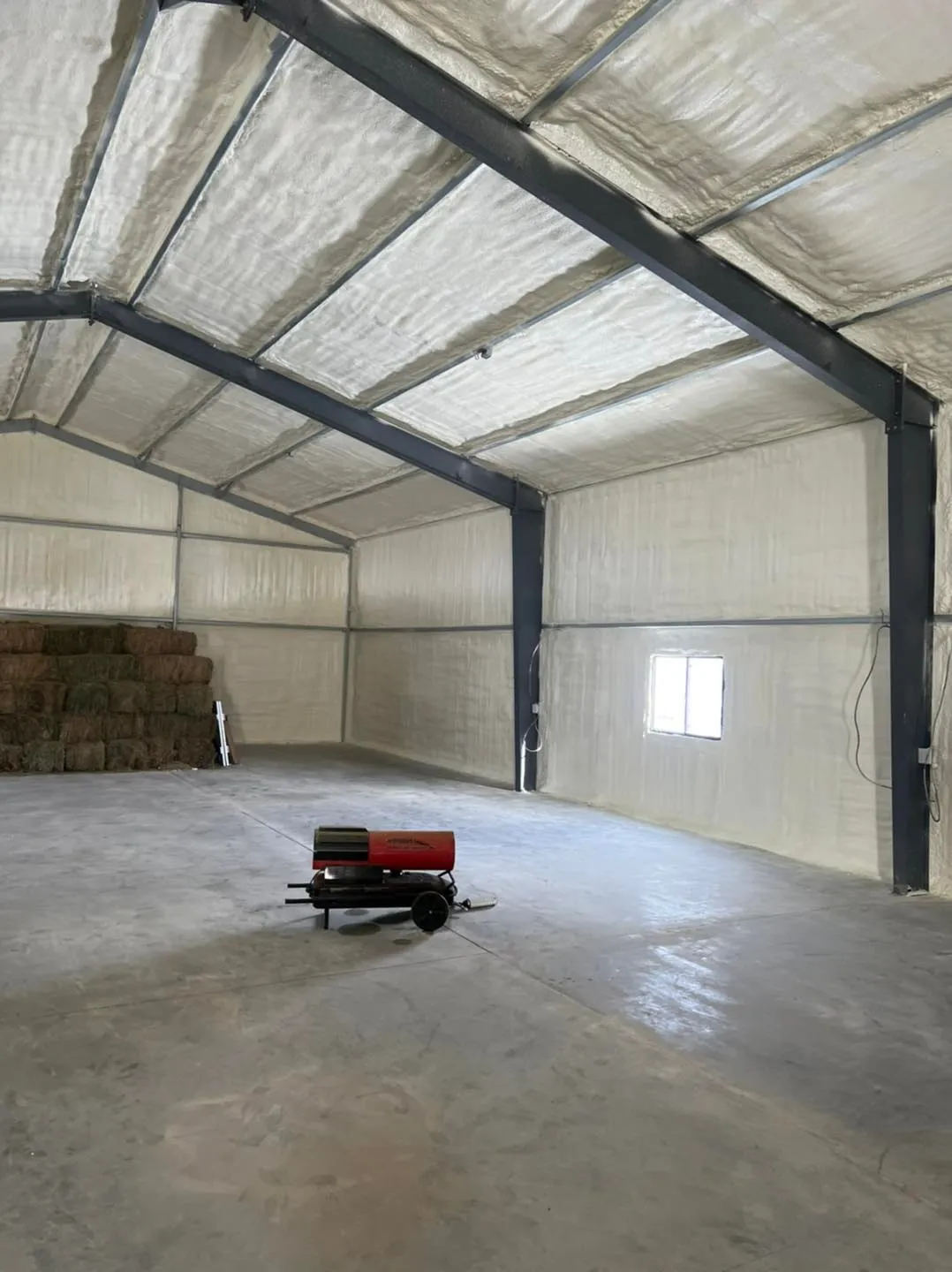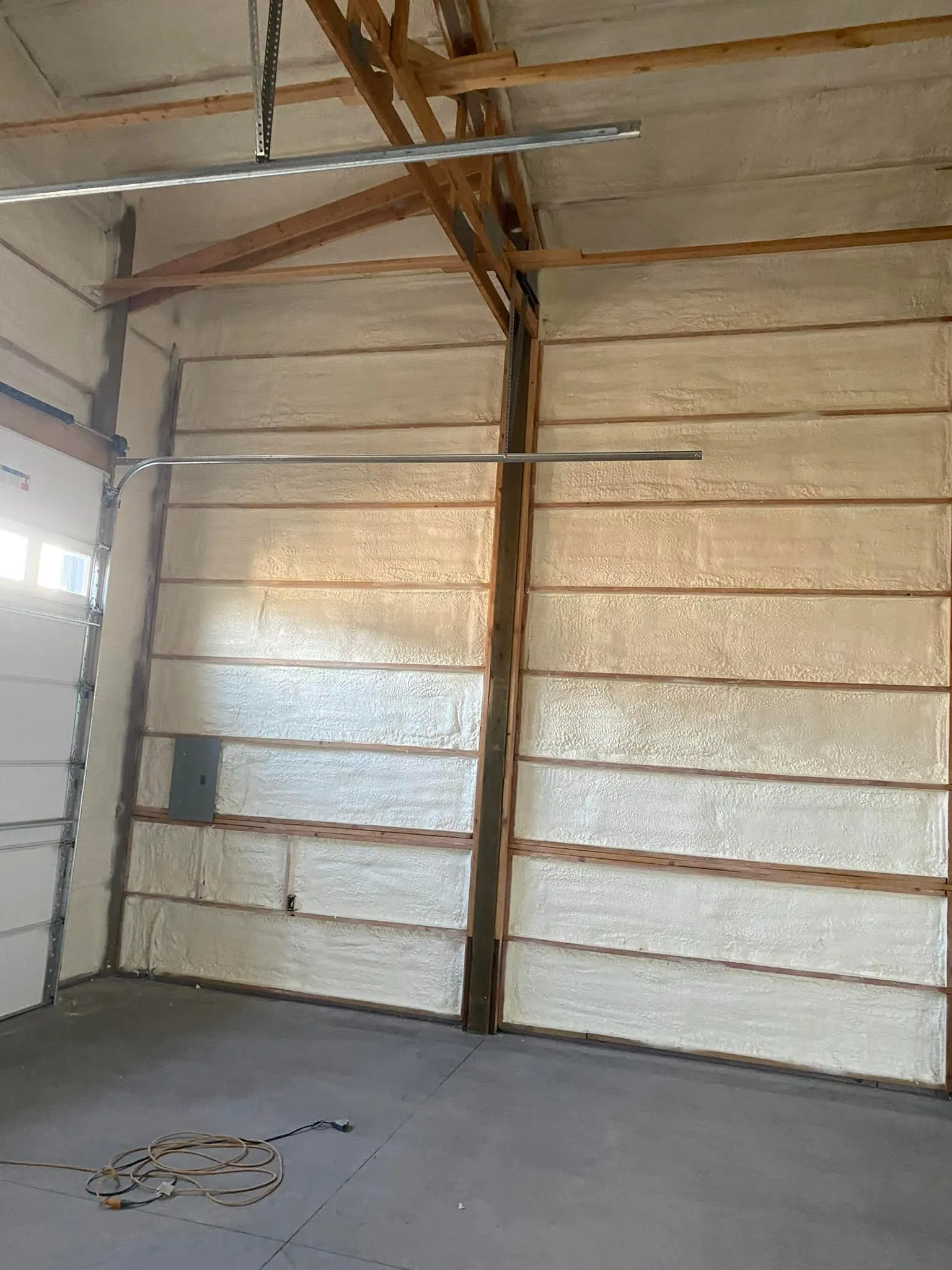
Picture walking into your office building on a frigid Wyoming morning, only to discover your heating bills have skyrocketed while employees complain about uncomfortable temperatures and drafty workspaces. High Country Solutions transforms commercial buildings across Alpine, WY and surrounding areas with advanced commercial insulation systems that slash energy costs, enhance comfort, and protect your valuable business investment. Our comprehensive approach delivers immediate comfort improvements while creating long-term value that positions your property as a premium workspace in today's competitive market.
Proper commercial insulation installation creates immediate and lasting advantages for business owners throughout Alpine, WY. Modern insulation systems reduce energy consumption by up to 40%, translating into substantial monthly savings that compound over years of operation. Temperature consistency improves dramatically, eliminating hot and cold spots that affect employee productivity and customer comfort.
Beyond financial benefits, quality insulation enhances indoor air quality by creating effective vapor barriers and reducing moisture infiltration. This protection prevents costly structural damage while maintaining healthier work environments. Sound dampening properties also improve acoustic comfort, creating more professional atmospheres for client meetings and collaborative workspaces.
High Country Solutions utilizes premium materials specifically engineered for commercial applications. Closed cell foam provides superior R-value per inch while creating exceptional air sealing properties that eliminate energy waste. Blown-in cellulose insulation offers excellent coverage in irregular spaces, ensuring complete thermal protection without gaps or thermal bridging.
Rigid foam boards deliver consistent performance in wall assemblies and roof systems, maintaining structural integrity under demanding commercial conditions. Mineral wool provides outstanding fire resistance while offering excellent acoustic properties for noise-sensitive environments. Radiant barriers reflect heat effectively, particularly beneficial for metal roof applications common in warehouse and industrial settings.
Professional spray foam insulation installation begins with comprehensive building assessment to identify thermal weaknesses and moisture concerns. Our systematic approach evaluates existing insulation performance, air leakage patterns, and structural considerations that affect long-term durability. Detailed measurements ensure accurate material calculations and optimal coverage strategies.
Installation procedures follow industry best practices with careful attention to vapor barrier placement and thermal bridge elimination. Quality control measures verify complete coverage and proper R-value achievement throughout the project. Final inspections confirm air sealing effectiveness and verify compliance with local building codes and energy efficiency standards.
High Country Solutions specializes in complete commercial insulation solutions for diverse building types. Office buildings benefit from enhanced comfort control and energy efficiency that creates productive work environments. Warehouses require specialized approaches that address large volume spaces while maintaining cost-effective temperature management.
Metal structures present unique challenges that our experience addresses through proven techniques and material selection. Ceiling installations provide critical thermal barriers between conditioned spaces and unconditioned areas above. Wall insulation creates envelope integrity that prevents energy loss while controlling moisture infiltration. Roof systems receive comprehensive treatment that protects against both heat loss and ice dam formation.

Alpine WY's challenging climate demands insulation systems that perform reliably through extreme temperature variations and heavy snow loads. Local businesses face unique challenges including high altitude conditions, intense solar exposure, and significant seasonal temperature swings that stress building envelopes. Strategic insulation placement addresses these specific conditions while maximizing energy efficiency.
Mountain climate considerations require careful vapor barrier placement and moisture management strategies. Our local expertise ensures proper material selection and installation techniques that prevent condensation issues while maintaining structural integrity. Understanding regional building practices allows us to integrate seamlessly with existing construction methods and local contractor relationships.
Insulation Type | R-Value per Inch | Best Applications | Key Benefits |
Closed Cell Foam | 6.0-7.0 | Walls, Roofs, Foundations | Air sealing, moisture barrier |
Blown-in Cellulose | 3.6-3.8 | Attics, Irregular spaces | Cost-effective coverage |
Rigid Foam Boards | 4.0-6.5 | Continuous insulation | Thermal bridge reduction |
Mineral Wool | 3.0-3.3 | Fire-rated assemblies | Fire resistance, sound control |
Transform your commercial property with expert insulation solutions designed for Alpine WY's demanding climate. Contact High Country Solutions at (307) 248-9063 to schedule your comprehensive building assessment and receive detailed project proposals tailored to your specific needs.
Properly installed commercial insulation typically reduces heating and cooling costs by 20-40%, with payback periods ranging from 2-5 years depending on building size and current efficiency levels.
Closed cell foam and rigid foam boards work exceptionally well for metal buildings, providing excellent R-value while addressing condensation concerns common in steel structures.
Most commercial projects require 2-5 days depending on building size and complexity, with minimal disruption to normal business operations through careful scheduling and efficient work practices.
Yes, mineral wool and dense-pack cellulose provide excellent acoustic properties that significantly reduce noise transmission between spaces and from external sources.
Wyoming follows International Energy Conservation Code standards with local amendments, requiring specific R-values based on climate zone and building type classifications.
